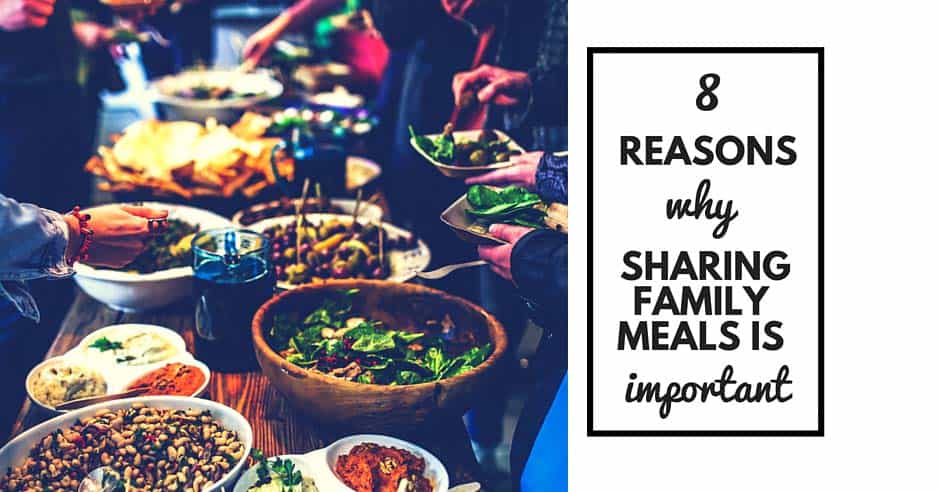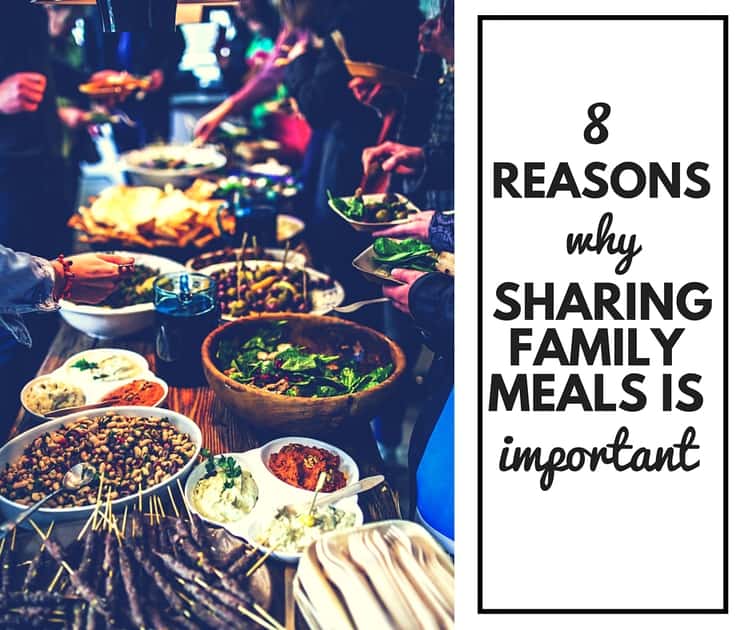The Enduring Power Of Shared Meals: Exploring The Significance Of Family Dinners
The Enduring Power of Shared Meals: Exploring the Significance of Family Dinners
Related Articles: The Enduring Power of Shared Meals: Exploring the Significance of Family Dinners
Introduction
With great pleasure, we will explore the intriguing topic related to The Enduring Power of Shared Meals: Exploring the Significance of Family Dinners. Let’s weave interesting information and offer fresh perspectives to the readers.
Table of Content
The Enduring Power of Shared Meals: Exploring the Significance of Family Dinners

The act of gathering around a table, sharing food, and engaging in conversation is a fundamental human experience that transcends cultures and generations. While the modern world often presents a whirlwind of competing demands, the simple act of having a family dinner continues to hold profound significance, fostering connection, promoting well-being, and shaping the fabric of family life.
The Foundations of Connection:
Family dinners serve as a cornerstone of family cohesion, providing a consistent space for shared experiences and meaningful interaction. In an era marked by busy schedules and fragmented lives, this ritual offers a sanctuary from the demands of the outside world. The absence of distractions like screens and external pressures allows for authentic communication, fostering a sense of belonging and shared identity.
Beyond the Plate: The Benefits of Shared Meals
The positive impacts of family dinners extend far beyond the immediate experience of eating together. Research consistently demonstrates a correlation between frequent family dinners and numerous benefits for both children and adults:
- Improved Academic Performance: Studies show a strong link between regular family meals and higher grades, better test scores, and improved academic performance. Shared meals provide an opportunity for parents to engage in educational discussions, support homework completion, and create a positive learning environment.
- Enhanced Communication and Social Skills: Family dinners foster open communication and strengthen family bonds. They provide a safe and structured setting for children to learn social cues, practice conversation skills, and develop empathy.
- Reduced Risk of Behavioral Issues: Studies have shown that children who regularly participate in family dinners are less likely to engage in risky behaviors, including substance abuse, early sexual activity, and delinquency.
- Improved Dietary Habits: Family dinners can encourage healthy eating habits by promoting shared meals and offering opportunities to introduce new foods. They also provide a platform for parents to model healthy eating behaviors and discuss the importance of nutrition.
- Reduced Stress and Anxiety: Shared meals provide a sense of comfort, stability, and routine, contributing to a feeling of well-being and reducing stress levels. The act of gathering together around a table can create a sense of togetherness and shared purpose, fostering a sense of belonging and support.
Navigating the Modern Landscape:
Despite the evident benefits, maintaining the tradition of family dinners in today’s fast-paced world can be challenging. Juggling work commitments, extracurricular activities, and the allure of digital entertainment often makes finding time for shared meals a struggle.
Strategies for Success:
- Prioritize and Schedule: Treat family dinners as a non-negotiable commitment, scheduling them into the week like any other important appointment.
- Simplify and Streamline: Embrace simple meal preparations that minimize time and effort. Utilize meal planning tools, rely on quick recipes, or involve family members in the cooking process.
- Embrace Flexibility: Adapt to busy schedules by adjusting dinner times or incorporating alternative meal formats, such as potluck dinners or breakfast for dinner.
- Minimize Distractions: Establish clear rules regarding screen use during meals, creating a dedicated space for family interaction.
- Focus on Connection: Emphasize conversation over food, engaging in meaningful discussions and sharing stories.
FAQs: Addressing Common Concerns
Q: What if my family is too busy for regular dinners?
A: Even occasional family meals can provide significant benefits. Aim for at least one or two dinners per week, gradually increasing frequency as schedules allow.
Q: My children are picky eaters; how can I encourage them to eat?
A: Involve children in the meal planning and preparation process, allowing them to choose ingredients or help with cooking. Present food in an appealing manner and avoid forcing children to eat specific foods.
Q: What if we can’t afford to eat out often?
A: Focus on simple, affordable meals at home. Explore budget-friendly recipes and consider cooking in bulk to save time and money.
Q: My family is spread out geographically; how can we maintain connection?
A: Utilize technology to connect remotely through video calls or virtual dinner parties. Share recipes and cooking experiences, creating a sense of shared ritual despite physical distance.
Conclusion:
In a world that often prioritizes individual pursuits and digital connections, the simple act of gathering around a table for a shared meal remains a powerful force for strengthening family bonds and fostering well-being. By embracing the tradition of family dinners, we invest in the health, happiness, and future of our families, creating lasting memories and nurturing the foundations of a strong and connected society.








Closure
Thus, we hope this article has provided valuable insights into The Enduring Power of Shared Meals: Exploring the Significance of Family Dinners. We appreciate your attention to our article. See you in our next article!